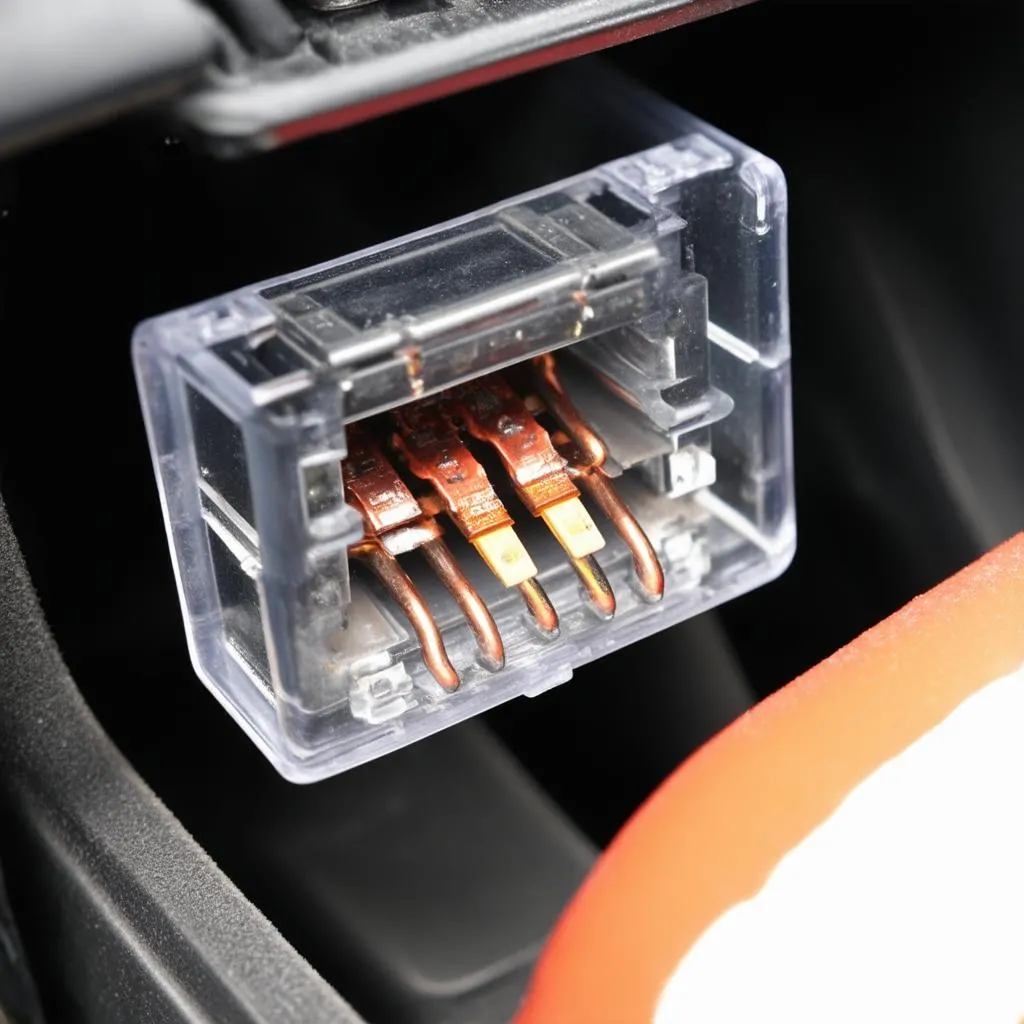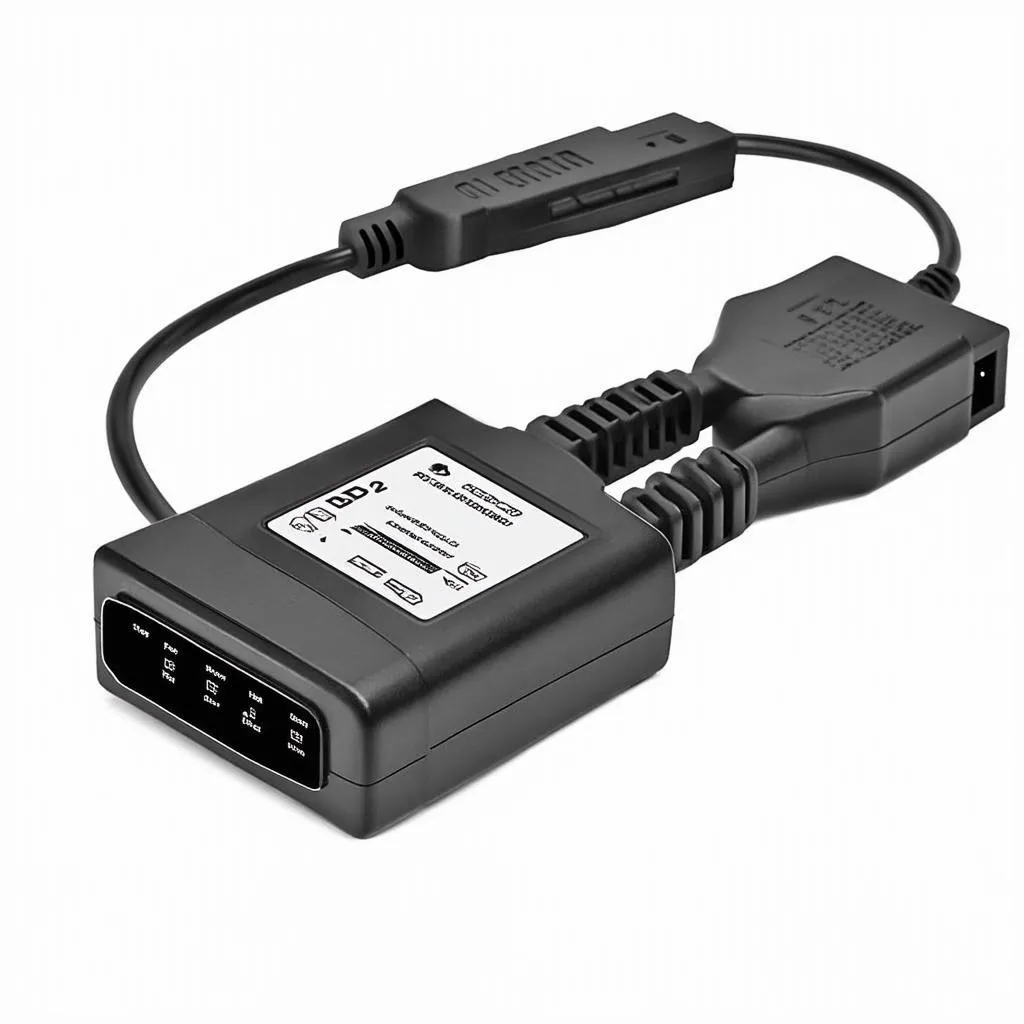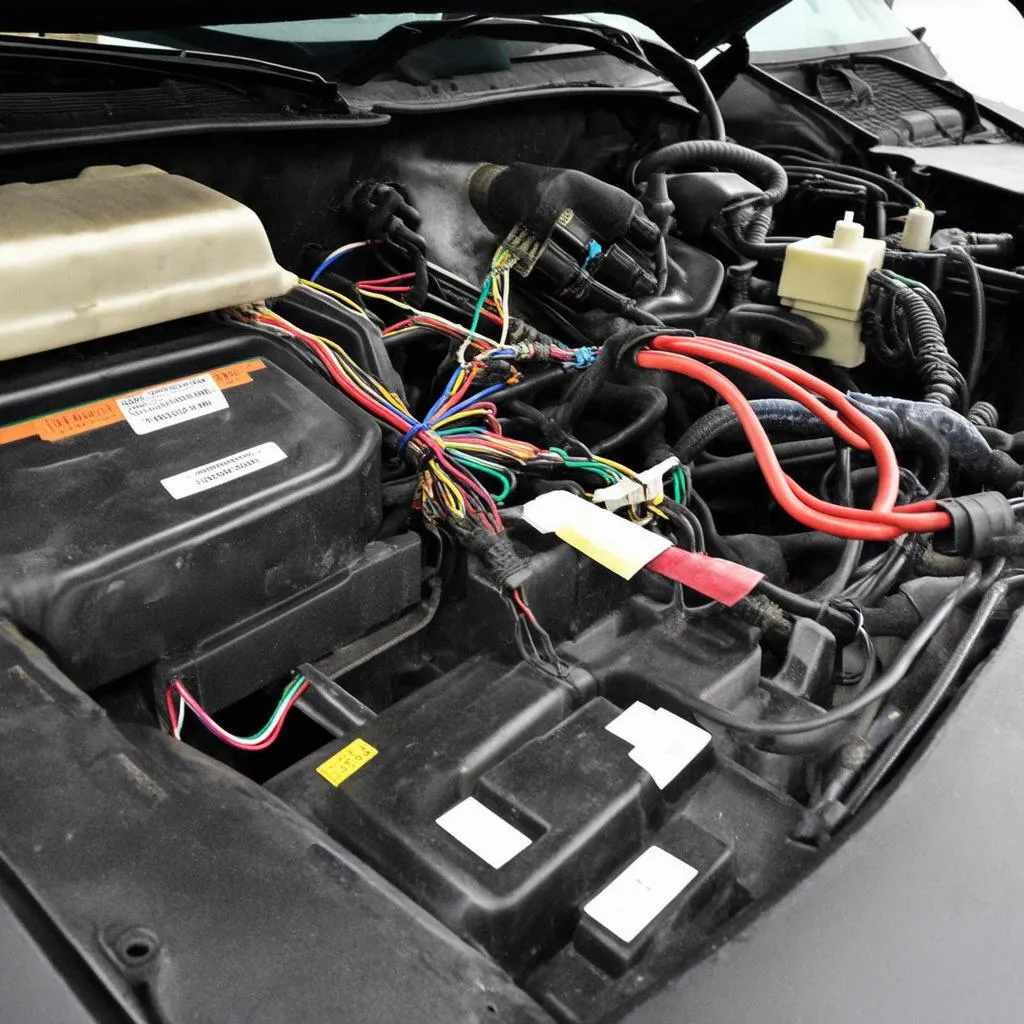You’ve probably heard the saying “If it ain’t broke, don’t fix it.” But what happens when your car’s electrical system suddenly decides to play a game of “broken”? It’s like your car is trying to tell you something, and a blown OBD fuse is a clear sign that something’s amiss.
Imagine this: You’re cruising down the highway, enjoying the open road, when suddenly your dashboard lights flicker, and your radio cuts out. You pull over, check under the hood, and see a blown fuse. The culprit? Your OBD fuse.
But why is the OBD fuse blowing? And what can you do about it?
Understanding the OBD Fuse and its Significance
The OBD fuse (On-Board Diagnostics) is a small but essential component of your car’s electrical system. It acts as a safety mechanism, preventing electrical overload and potential damage to your vehicle’s computer. The OBD system helps you understand your car’s health and diagnose any potential issues.
The Heart of the System
The OBD system is like the brain of your car. It monitors vital functions like engine performance, emissions, and other parameters. When the OBD fuse blows, it essentially shuts off the communication between your vehicle’s brain and the diagnostic tools.
A Fuse Blowing is a Sign
Think of a blown fuse as a warning light. It’s telling you that something’s wrong in your car’s electrical system. Ignoring a blown fuse can lead to bigger problems down the line.
Causes of a Blown OBD Fuse
So what’s behind this electrical drama? Let’s dive into some of the common culprits:
1. Short Circuit: The most frequent culprit is a short circuit in the wiring harness. This happens when exposed wires come into contact, creating a pathway for excess electrical current to flow. Imagine a tangled wire as a fire hazard – it’s the same principle here!
2. Faulty Electrical Component: A malfunctioning electrical component, like a sensor or actuator, can draw excessive current, leading to a blown fuse. Think of it like a faulty electrical appliance in your home – it can overload the circuit and trip the breaker.
3. Water Damage: Water intrusion into your car’s electrical system can lead to corrosion, creating short circuits and blowing the OBD fuse. Think of how water can damage your electronic devices; the same principle applies to your car’s electrical system.
4. Improper Installation: Sometimes, a blown fuse can be attributed to a faulty installation of a new component or even the fuse itself. Think of a fuse as a tiny hero sacrificing itself to protect your car’s electrical system.
Troubleshooting & Solutions
1. Check the Fuse Box
- Locate the fuse box: It’s usually found under the hood, near the battery, or inside the passenger compartment.
- Identify the OBD fuse: Refer to your car’s owner’s manual for the location and size of the OBD fuse.
- Replace the blown fuse: Use a fuse of the same amperage rating.
2. Inspect the Wiring Harness
- Look for any signs of damage: This includes frayed wires, melted insulation, or corrosion.
- Repair or replace damaged wires: If you find any damage, it’s crucial to repair or replace the affected wiring to prevent further problems.
3. Diagnose Faulty Electrical Components
- Use a diagnostic scanner: This tool can help you pinpoint the faulty component.
- Replace the faulty component: Once you’ve identified the culprit, replace it with a new, compatible part.
4. Addressing Water Damage
- Thoroughly dry the affected area: Use a hairdryer or a fan to dry the area where water intrusion occurred.
- Replace any corroded wiring or components: Corrosion can lead to electrical issues, so it’s essential to replace any affected parts.
Additional Tips and Insights
- Consult a professional: If you’re not comfortable troubleshooting electrical problems, it’s always best to consult a qualified automotive technician.
- Remember Feng Shui: Some believe that a blown fuse is a sign of imbalance in your car’s energy. You can try placing crystals or other Feng Shui elements in your car to re-energize the space. (Remember, this is a personal belief and is not based on scientific evidence.)
Common Questions:
Q: Can I use a higher amperage fuse?
A: No! Using a higher amperage fuse can lead to overheating and potentially damaging your electrical system.
Q: How often should I check my fuses?
A: It’s good practice to check your fuses at least once a year or whenever you notice any electrical issues in your car.
Q: Can I replace the OBD fuse with a different type?
A: No! Using the wrong type of fuse can lead to malfunctions and damage. Always refer to your owner’s manual or consult a professional for the appropriate fuse type.
Q: Why is my 2002 Denali OBD fuse blowing so frequently?
A: If your 2002 Denali Obd Fuse Keeps Blowing frequently, it’s a sign that there’s a persistent issue in your car’s electrical system. It’s best to consult a qualified technician to diagnose and repair the underlying problem.
Q: Can I use a fuse puller tool to replace the OBD fuse?
A: Yes, you can use a fuse puller tool to safely remove and replace the fuse.
Similar Products & Services
- OBD2 Scanner: This tool allows you to read and clear diagnostic trouble codes from your car’s computer.
- Diagnostic Software: There are various software programs available for diagnosing electrical issues in vehicles.
Supported Vehicle Makes & Models
- GM: Cadillac, Chevrolet, Buick, GMC, Hummer
- Ford: Ford, Lincoln, Mercury
- Chrysler: Chrysler, Dodge, Jeep, Ram
- Toyota: Toyota, Lexus, Scion
- Honda: Honda, Acura
- Nissan: Nissan, Infiniti
Need Further Assistance?
Don’t hesitate to contact us at +84767531508 for personalized assistance. Our team of automotive experts is available 24/7 to help you with any of your vehicle’s electrical system needs.
 Blown OBD fuse
Blown OBD fuse
 OBD2 Scanner Tool
OBD2 Scanner Tool
 Car Wiring Harness
Car Wiring Harness
We hope this article has shed light on the mystery of your blown OBD fuse. Don’t let a blown fuse keep you from enjoying the open road!